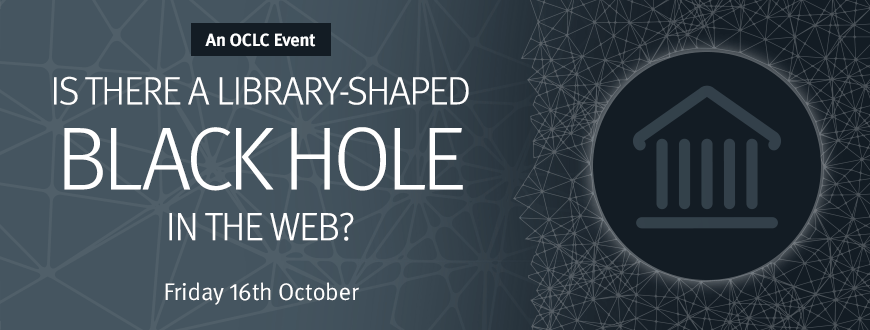
Programme
Providing Semantic and Bibliographic Data for Library Discovery
Dr. Cathy Dolbear, Senior Link Architect, Oxford University Press
Dr. Cathy Dolbear is a Senior Link Architect in the Global Academic Division of Oxford University Press (OUP). She has been involved in semantic data modelling using RDF for more than ten years, most recently in the publication of RDFa using the schema.org vocabularies and data mining projects to increase the semantic richness of OUP's data.
In this session, Cathy will talk about lessons learnt during development of a repository for OUP's semantic and bibliographic metadata, highlighting the interaction between taxonomies, ontologies and XML data models. Following a review of library discovery services to whom we supply metadata, Cathy will discuss industry trends for the publication and delivery of metadata, and consider when we might expect consumption of bibliographic linked data to become mainstream.
When: 09:30 - 15:45, Friday 16 October 2015
Where: G B Ong Room, Royal College of Surgeons of Edinburgh, Nicolson Street, Edinburgh, EH8 9DW, Scotland
Attendance: Free to attend
For the full programme, click here
The themes of this event are based around those in the 'Creating Library Impact Through New Forms of Engagement' report published by OCLC last year.
Contextual Semantics Data Models and Libraries
Neil Jefferies, Head of R&D, Bodleian Digital Library,
University of Oxford
Neil Jefferies is the Research and Development Project Manager at the Bodleian Libraries. He was involved with the initial setup of the Eprints and Fedora Repositories at the University of Oxford, and is now working on the implementation of a long-term digital archive platform.
Referencing his work at the Bodleain Digital Library, Neil will look at how contextual semantics data models support the development of information systems within libraries, by providing a human-readable and machine-readable definition and format of data. He will place this in context with initiatives such as LD4L, a cooperation between Stanford, Cornell, and Harvard Universities to explore real benefits in applying Linked Data techniques within and between their libraries.
Neil will then discuss how implementing such a data model can improve compatibility of data between different systems and increase the opportunities for data integration within and outside the organisation.

Anyone Can Say Anything: Improving Library Data with Linked Data
Owen Stephens, Owen Stephens Consulting
In the world of linked data, it is often said that 'anyone can say anything about anything'. This is both a huge challenge and opportunity for libraries wanting to exploit linked data. This talk will explore the 'open world assumption' of linked data, how it might benefit libraries and what approaches will allow libraries to take advantage of published linked data while trying to avoid problems caused by data of variable quality and veracity.

Re-envisioning, Exposing and Sharing Library Data - What Do Users Really Want?
Ken Chad, Independent Consultant - Ken Chad Consulting
In recent years, pioneering libraries have made increasing explorations into applying linked data concepts to library metadata with the goal of improving discoverability. Yet, as our users still can't easily find our institutions, let alone our resources or services on the Web, what is the point? Ken will introduce an innovative and practical method that looks at user needs in terms of what 'jobs' they are trying to get done/problems they are trying to solve. This approach can be used to ensure that potential solutions such as linked data are used to deliver outcomes that contribute to a better user experience.

The Web of Data is Our Oyster
Richard Wallis, Independent Consultant, Evangelist and Founder - Data Liberate
The last decade has seen a significant revolution. Ten years ago, we were observing that the Web had arrived and come of age on our PC screens. But since then with the help of 4G, the iPhone and iPad, cloud computing and storage, video streaming, Google, Facebook, Twitter, Wikipedia, the worlds entertainment and information in most languages is laid at our feet - or in our pockets. One core driver of this revolution is data - data about your friends, contacts and interests - data from Wikipedia - data embedded in the Web pages of successful media and commercial organisations - data that powers the search engines' knowledge graphs.
The vast amount of quality curated information in libraries and their collections is mostly missing from this picture. Why, and what can we do to fill this library-shaped information black hole? A key question from libraries of all types, one that becomes even more pertinent as the data, information and knowledge driven Web evolves over coming decades.
Linked data is at the heart of a response to this situation - it does after all underpin what is happening on the web outside of libraries. There have been many library linked data initiatives that have been successful in their own right, but as yet these library focused approaches have had little impact on visibility of, and access, to library resources. What can we learn from the wider Web's enthusiastic adoption of these techniques?
Discovery and visibility are key aspects of the benefits of linked data, yet it would be a mischaracterisation to think that these are the only ones. There is great potential for these techniques to deliver benefits and efficiencies in current and new library workflows. From new ways of managing metadata to more intuitive analytics, linked data can revolutionise our world too.


The web has irrevocably changed how we search for and find information. Library users expect to find and access materials online using every day Web sites and search engines. It's no longer enough to have library pages "on the Web", library data must now be "woven into the Web" - to be where users are - or continue the decline as a primary provider and curator of information and data.
Library data encodes some of the most important, unique and authoritative information in the world, but bibliographic data stored in traditional record formats has reached its limits of efficiency and utility. It is imperative that library data be made available in new data formats that are native to the Web and exposed to the wider Web community, if it is to be made discoverable by other sites, services, and ultimately consumers.
Join OCLC for this engaging and pragmatic event looking at how new technologies now enable us to re-envision, expose and share library data as entities (work, people, places, etc.) and what this means.
During the day, you will learn how entity-based descriptions of library data - powered by linked data - will create new approaches to cataloguing, resource sharing and discovery. We will look at how referencing library data as entities, in Web friendly formats, enables data relationships to be rendered useful in many more contexts increasing the relevance of libraries within the wider information ecosystem.
By giving us your email address you are opting in to further communications from OCLC. However, you will be able opt out of these at any time by following the unsubscribe link on the email footer.
Your privacy is very important to us. View our privacy statement.


Back by popular demand. This is a rerun of an event that we held back in May
Deus ex machina: is linked data the answer to libraries' woes?
Gill Hamilton, Digital Access Manager, National Library of Scotland
Gill Hamilton is Digital Access Manager at National Library of Scotland where she leads on access to the Library's extensive digitised, licensed, born digital and legal deposit digital collections. Through her experiments Gill has learned of the opportunities that a linked data approach can offer libraries and how it may address and resolve the challenges of working with legacy formats, out-dated standards, outmoded systems and "un-interoperable" metadata. Gill will outline the challenges as she sees them and share some of the findings from her work in this area. She will also offer practical tips to help libraries prepare for the linked data environment.

